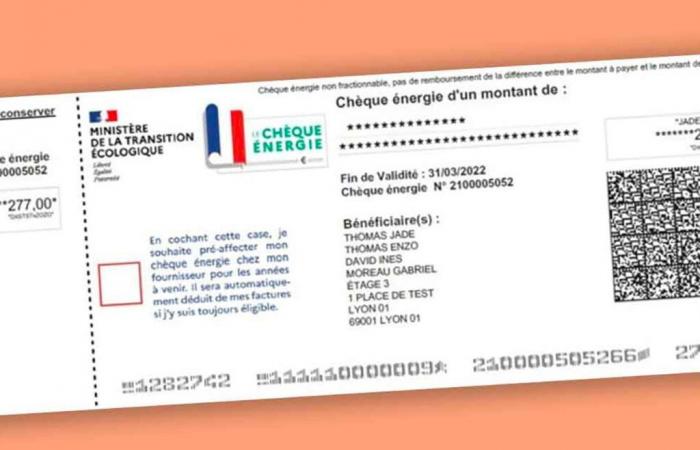L’allocation of the energy check will now be based on new criteria, following the abolition of the housing tax. The elements taken into account will be:
- The number of the electricity delivery point of the accommodation
- The household’s reference tax income
This information must be transmitted and validated online on a dedicated platform. This approach will allow potential new beneficiaries to access this financial assistance. It is important to note that these changes will not affect former beneficiaries, who will continue to receive their check automatically, unless the income limits change.
The government thus hopes to optimize the distribution of aid and reduce the difficulties encountered during the 2024 campaign, where approximately one million eligible people had not received their check in April.
End of automatic sending for new beneficiaries
One of the major changes of this reform concerns the removing automatic sending for new beneficiaries. Until now, the energy check was sent directly to eligible households by mail each year. From 2025, households will have to carry out a online request to receive their help.
This modification raises concerns among certain consumer associations, who fear an increase in the rate of non-recourse. This phenomenon refers to the number of people who do not receive a benefit or service to which they could be entitled.
Here is a summary table of the planned changes:
| Aspect | Avant 2025 | After 2025 |
|---|---|---|
| Distribution | Automatic | On request (new beneficiaries) |
| Criteria | Income and housing tax | Electricity delivery point and tax income |
| Procedure | Sending by mail | Online request |
Amount and use of the energy check
Despite these significant changes, the amount of energy check will remain unchanged in 2025. It will still oscillate between 48 and 277 euros, depending on income and the composition of the household. This financial assistance, valid for one year, allows you to pay for various energy expenses related to housing:
- Electricity
- Natural gas
- Heat
- Liquefied petroleum gas
- Domestic fuel
- Wood and biomass
- Other fuels intended for heating or hot water production
In addition, the energy check can also be used to finance certain energy renovation work. This option allows beneficiaries to invest in improving the energy efficiency of their homes, thus helping to reduce their bills in the long term.
Prospects and challenges for 2025
The reform of the energy check is part of a broader context of energy transition and the fight against precariousness. If the stated objective is to improve the effectiveness of the system, significant challenges remain:
- Ensure a communication claire with potential beneficiaries on the new terms
- Guarantee the accessibility of the online platform for all audiences, including people unfamiliar with digital tools
- Put in place support measures to limit non-recourse to aid
- Regularly assess the impact of these changes on the most vulnerable households
The year 2025 will therefore mark a turning point in energy aid policy in France. The success of this reform will depend on the capacity of public authorities to adapt the system to realities on the ground, while preserving its effectiveness and social impact. The challenge is high: to enable 5.8 million households to cope with rising energy costs, while encouraging more responsible and sustainable consumption.






